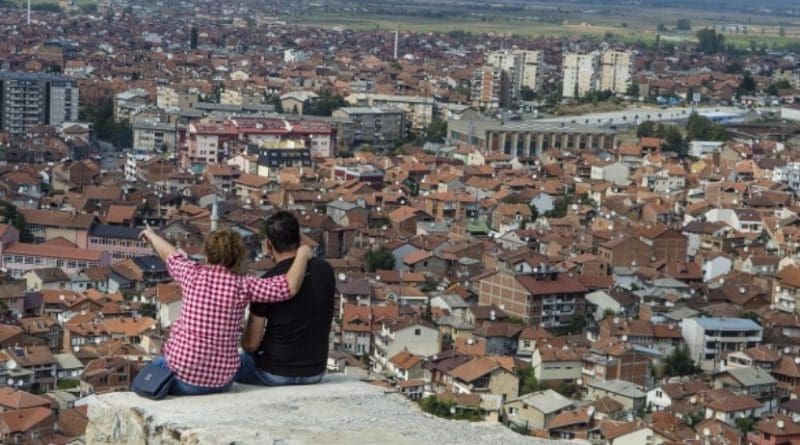Past Feuds Overshadow Kosovo Coalition Talks
By Perparim Isufi and Amire Qamili
Vetevendosje and the Democratic League of Kosovo, LDK, resumed their talks on Monday in a bid to reach a coalition agreement in Kosovo – which still has no government.
However, many question whether the two old rivals can clear away all the animosities from the past.
Late in 2015 and early in 2016, Vetevendosje challenged LDK Prime Minister Isa Mustafa’s government with the most radical methods, including letting off tear gas in parliament, throwing Molotov cocktails in the streets and even staging protests in front of his home.
Vetevendosje and the LDK – along with its allies – have now appointed working groups to hatch an eventual agreement but the LDK hinted on Monday that it is still early to talk about a result.
“There is no common ground as yet. We have talked to or three times but we didn’t talk concretely on a government program and about which issues hinder us most,” Mustafa said on Monday.
Mustafa noted that visa liberalization for Kosovo, the controversial border demarcation agreement with Montenegro, dialogue with Serbia and the transformation of Kosovo Security Force, KSF, into a regular army are “pressing issues” that need to be solved.
“I expect these issues to be opened at some point and discuss whether we can find a common ground,” Mustafa said.
“If we can find that common ground, we will do it [form a coalition]. If not, we will stay in opposition,” the LDK leader added.
The process of appointing a parliamentary speaker, which will open the way for the President to give a mandate to the Prime Minister, has been blocked because the coalition that won the most seats, made up of the Kosovo Democratic Party, PDK, the Alliance for the Future of Kosovo, AAK and the Initiative for Kosovo, NISMA – is still hesitating to nominate a candidate, owing to the lack of votes in parliament.
The PAN coalition wants first to secure a political agreement that will ensure that its candidate for Prime Minister, Ramush Haradinaj, is put in place.
Once a speaker is elected, the first person to get a mandate to be Prime Minister, Haradinaj, will have 15 days to present his cabinet to parliament.
If he fails to do so, the President will have the discretion to mandate a second candidate who will have a shorter deadline of 10 days.
As the party that won the second largest number of votes in the June 11 general election, Vetevendosje expects its leader, Albin Kurti, to be given a chance to form a government.
Analysts suggest that Vetevendosje and LDK have mountains to climb before they can reach an agreement.
Rasim Alija, from the Pristina-based think tank Democracy for Development, expects the unpopular dialogue with Serbia and the economy to be the two trickiest issues during the discussions between Vetevendosje and LDK.
“If we see their programs, we see great differences on forms and instruments for economic development. The same applies to the issue of dialogue with Serbia,” Alija told BIRN.
However, an expert on political parties, Visare Gorani, suggested that the two parties might put those animosities behind them when they sit around the table for discussions.
Although it may not be easy for them to talk, Gorani says that when two opponents sit around the same table, trying to find a solution, it is part of “the charm of democracy”.
“The negotiations on the creation of VV-LDK coalition are oriented towards finding a solution. We all know about their differences, but they now need to focus on finding common ground,” Gorani told BIRN.
“Demarcation, dialogue with Serbia and the KSF’s transformation are issues that go beyond any political party – so they need to reflect on these issues,” Gorani added.

